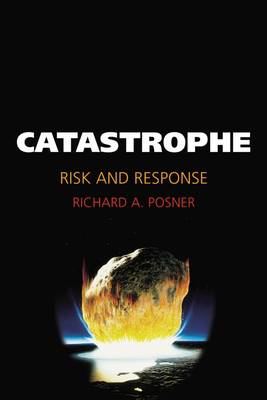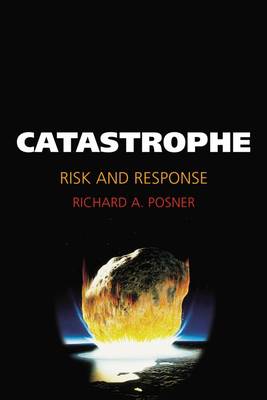
Bedankt voor het vertrouwen het afgelopen jaar! Om jou te bedanken bieden we GRATIS verzending (in België) aan op alles gedurende de hele maand januari.
- Afhalen na 1 uur in een winkel met voorraad
- Gratis thuislevering in België
- Ruim aanbod met 7 miljoen producten
Bedankt voor het vertrouwen het afgelopen jaar! Om jou te bedanken bieden we GRATIS verzending (in België) aan op alles gedurende de hele maand januari.
- Afhalen na 1 uur in een winkel met voorraad
- Gratis thuislevering in België
- Ruim aanbod met 7 miljoen producten
Zoeken
Omschrijving
Catastrophic risks are much greater than is commonly appreciated. Collision with an asteroid, runaway global warming, voraciously replicating nanomachines, a pandemic of gene-spliced smallpox launched by bioterrorists, and a world-ending accident in a high-energy particle accelerator, are among the possible extinction events that are sufficiently likely to warrant careful study. How should we respond to events that, for a variety of psychological and cultural reasons, we find it hard to wrap our minds around? Posner argues that realism about science and scientists, innovative applications of cost-benefit analysis, a scientifically literate legal profession, unprecedented international cooperation, and a pragmatic attitude toward civil liberties are among the keys to coping effectively with the catastrophic risks.
Specificaties
Betrokkenen
- Auteur(s):
- Uitgeverij:
Inhoud
- Aantal bladzijden:
- 336
- Taal:
- Engels
Eigenschappen
- Productcode (EAN):
- 9780195306477
- Verschijningsdatum:
- 8/12/2005
- Uitvoering:
- Paperback
- Formaat:
- Trade paperback (VS)
- Afmetingen:
- 154 mm x 225 mm
- Gewicht:
- 471 g

Alleen bij Standaard Boekhandel
+ 132 punten op je klantenkaart van Standaard Boekhandel
Beoordelingen
We publiceren alleen reviews die voldoen aan de voorwaarden voor reviews. Bekijk onze voorwaarden voor reviews.












